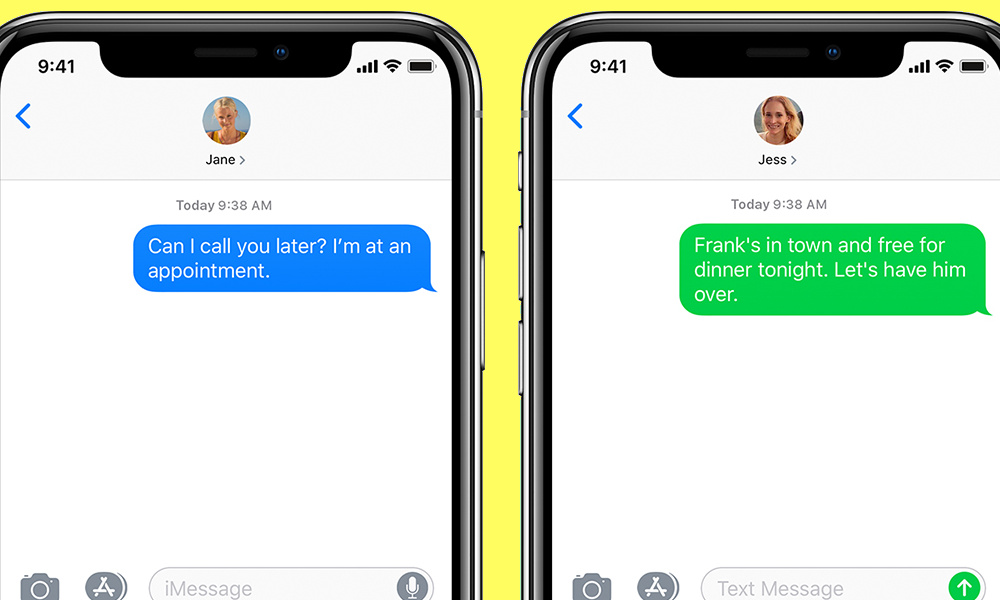FCC Commissioner Bafflingly Claims Apple Is Violating Accessibility Rules by Blocking Beeper Mini
 Credit: Apple
Credit: Apple
Toggle Dark Mode
While the developers behind the infamous Beeper Mini Android iMessage app have already given up the fight, it seems that at least some government officials aren’t willing to let the matter rest just yet.
While the US Federal Trade Commission (FTC) and Department of Justice (DoJ) are allegedly still investigating the controversy — likely as part of a broader antitrust investigation — it looks like the Federal Communications Commission (FCC) is also getting involved.
However, the FCC isn’t looking at it as an antitrust case. Rather, Republican FCC Commissioner Brendan Carr is taking a more bizarre angle, calling out Apple’s decision to block Beeper Mini from connecting to its iMessage servers as a potential violation of the FCC’s accessibility rules.
According to The Verge, Carr believes that Apple’s move may run afoul of the FCC’s Part 14 rules that require advanced communications services to accommodate users with disabilities.
Carr implies that Beeper Mini improved accessibility as it “bridged the “blue bubble – green bubble” divide,” allowing iPhone users to communicate with blue bubbles that are more easily readable on the iPhone screen, rather than green bubbles with low contrast that “makes it difficult for people with low vision or difficulty with seeing from picking up those messages.”
The FCC’s accessibility rules mandate that providers “shall not install network features, functions, or capabilities that impede accessibility or usability,” and Carr believes that by blocking Beeper Mini, Apple violated that rule, impeding the accessibility of iMessage.
Apple made changes to iMessage to disable the functionality of Beeper Mini. The FCC should launch an investigation to look at whether Apple’s decision to degrade the Beeper Mini functionality that was being provided, which again, encouraged accessibility and usability, was a step that violated the FCC’s rules.
FCC Commissioner Brendan Carr
If this position sounds slightly unhinged, that’s probably because Carr doesn’t seem to understand what he’s talking about. While Beeper Mini was indeed hailed by many as a step toward more open cross-platform messaging, the reality is that the app’s developers had effectively hacked Apple’s iMessage servers to make it happen — something that could probably be construed as violating a different FCC rule.
However, Carr’s conflating of iMessage (blue bubbles) and SMS (green bubbles) also shows how nuanced this situation is. Apple isn’t deliberately degrading iMessage for Android users like some folks seem to think. Rather, since iMessage is a closed platform operated and paid for by Apple for the benefit of owners of Apple’s devices, folks running Android simply aren’t invited to the table. Instead, iPhones communicate with Android devices the same way they communicate with dumb “feature” phones — using the baseline SMS/MMS technology.
However, Apple’s choice to make this as seamless as possible for its users may also be its undoing. Many iPhone users see the Messages app on their iPhone and equate it with iMessage when the reality is that it’s merely a single client for two entirely different messaging networks. The Messages app is no more about iMessage than the Mail app is about iCloud Mail. The only difference is that iCloud Mail (mostly) uses an open standard known as IMAP; iMessage is a closed, proprietary system. That’s a significant distinction, to be fair, but it’s also worth noting that even Mail uses proprietary protocols to handle things like push email.
Unfortunately, since the same Messages app is used to communicate on both the iMessage and SMS networks, many iPhone users don’t fully understand the difference between green and blue bubbles under the hood. They just see iPhone users getting preferential treatment with the ability to exchange full-resolution media, typing indicators, read receipts, and more while everyone else is left out of the party.
Whether Apple should be opening up iMessage is open for debate, but suggesting that blocking an Android app that has been illegitimately connecting to the service is an accessibility issue is patently absurd. However, we probably shouldn’t hold our breath on the antitrust angle either, as even the European Union doesn’t think iMessage qualifies as a problem under its Digital Markets Act (DMA), which is otherwise way ahead of the curve in regulating significant areas of Apple’s business model.
The good news is that this whole argument may be moot by the end of this year, as Apple has pledged to embrace Rich Communication Services (RCS), an open communication standard that’s effectively the next generation of SMS and will bring many (but not all) iMessage-like features to communications with users of Android devices and other smartphones that support RCS.






